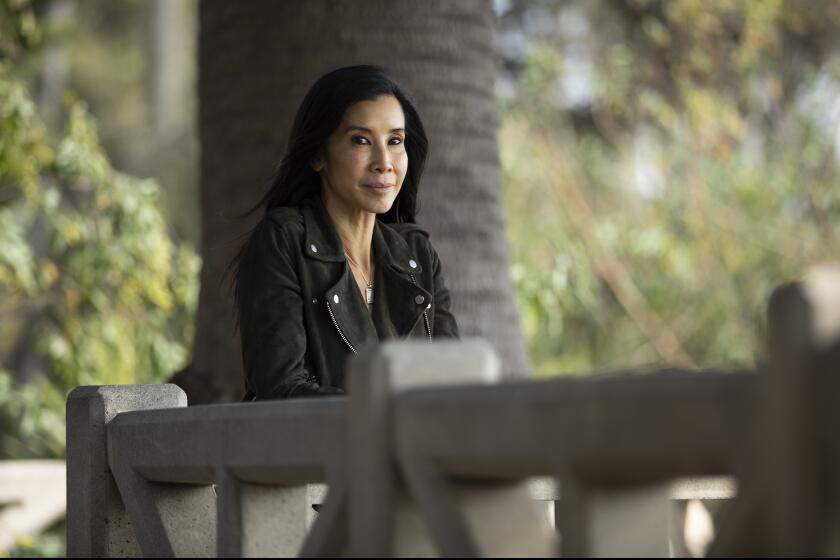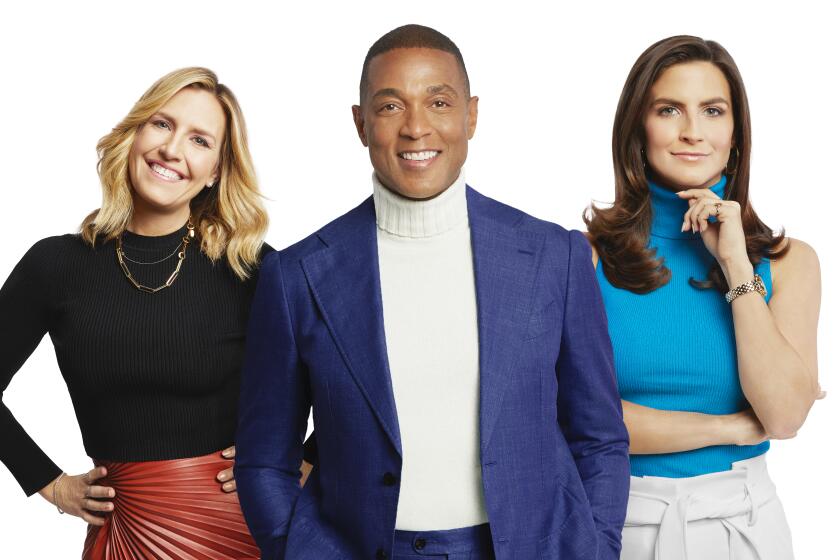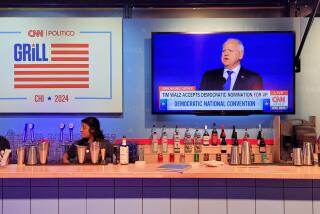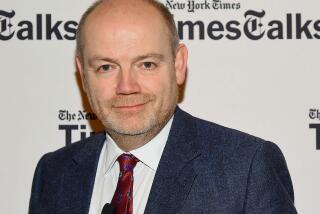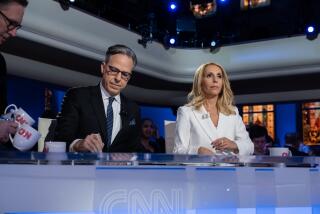CNN boss Chris Licht on restoring trust and why he deleted his Twitter account
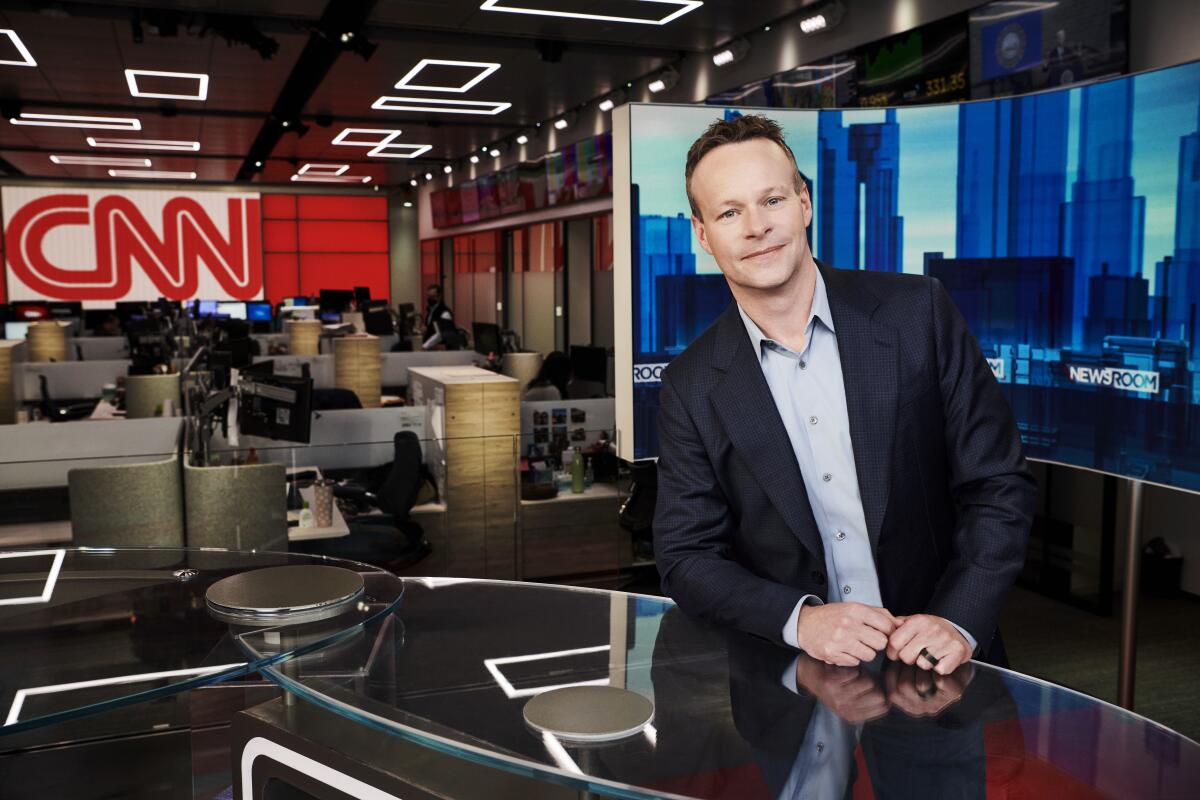
Slumping ratings, cost-cutting, show cancellations and — comedy?
The path of CNN has been a bit rocky since it became part of Warner Bros. Discovery last year and the parent company’s chief executive, David Zaslav, picked veteran news and late-night TV producer Chris Licht to run the network that created the cable news business nearly 43 years ago.
CNN has cut personnel amid broader cost-cutting efforts at the parent company. But Licht, 51, has been deliberate in his programming moves. He launched “CNN This Morning” with Don Lemon, Poppy Harlow and Kaitlan Collins, which is starting slowly in the ratings but growing since it began simulcasting on HLN. He’s announced an upcoming revamp of CNN’s daytime lineup, moving it away from the traditional behind-the-desk news reading and using a trio of anchors.
Licht has yet to take a big swing in prime time — the network has never replaced host Chris Cuomo, who was fired in December 2021 — although it’s likely a comedian will be part of the equation. (Fox News is drawing more than 2 million viewers a night with a comedy-driven talk show, “Gutfeld!”) CNN will test those waters starting this Friday with “Overtime.” The extension of HBO’s topical comedy talk show “Real Time With Bill Maher” will be shown on CNN at 11:30 p.m. ET and 8:30 p.m. PT.
Licht shared some thoughts on his vision for CNN in a conversation last week on a Zoom call from his office in New York.
How are you feeling about the fishbowl aspect of this job, where every move seems to be analyzed and criticized? Were you prepared for that?
It’s a symptom of CNN’s place in society. It’s an incredibly big job that deserves this level of scrutiny, and when Zas offered me the job, he probably said 37 times in one conversation how brutal it was going to be. Intellectually, I absolutely expected this and I’m not surprised at all.
How is it emotionally?
Listen, you have to remember that I took this job because I was very clear on a vision of what I want to do and where I fit into Zaslav’s vision of the company. So that’s why I deleted my Twitter account. I’m not really susceptible to the highs and lows of it, because I’m really very focused on the end product.
The CNN Original Series with journalist Ling will begin its ninth and final season on Nov. 27. It’s the first programming casualty of the news channel’s cost reductions.
What do you think is better about CNN since you arrived?
Too early to say because we haven’t really executed a lot of what we’re going to do. But I hope that CNN is better in that I’m allowing people to do their jobs and leaning into the talent that we have here. If I’m a correspondent, I feel like perhaps I have a bigger voice.
Are the correspondents getting more airtime?
Absolutely. We have fewer contributors, and we’re leaning into more conversations with correspondents about their reporting. They’re influencing the coverage in a way that they didn’t before.
So there was some reporting that said you’re looking to do some type of topical comedy show in prime time. Is that true?
No. I worked on a comedy show. And it took over 200 people to produce an actual comedy show. So no, I would not be so foolish as to, in one fell swoop, hurt the brand of comedy and news by trying to do a comedy show on CNN.
What are you doing?
I’m casting a wide net to help broaden the appeal of our prime time. But at the same time, I can’t offend our core audience of news junkies. I would never do anything that would hurt the brand and reputation that we’re working so hard to restore.
Are you talking to comedians about being part of the new prime-time show?
We are in conversations with culturally relevant individuals from the worlds of entertainment, sports and comedy who can bring fresh and unique perspectives to the news.
Lemon, Poppy Harlow and Kaitlan Collins will co-anchor ‘CNN This Morning,’ the first major programming change at the network under new boss Chris Licht.
Most funny comedians are liberal. Even Bill Maher has a liberal sensibility. How will this work for a network that is trying to appear less politically partisan?
There is nothing wrong with opinion or perspective, especially in prime time, but it has to be authentic. We are completely uninterested in partisan hackery and ideological talking points.
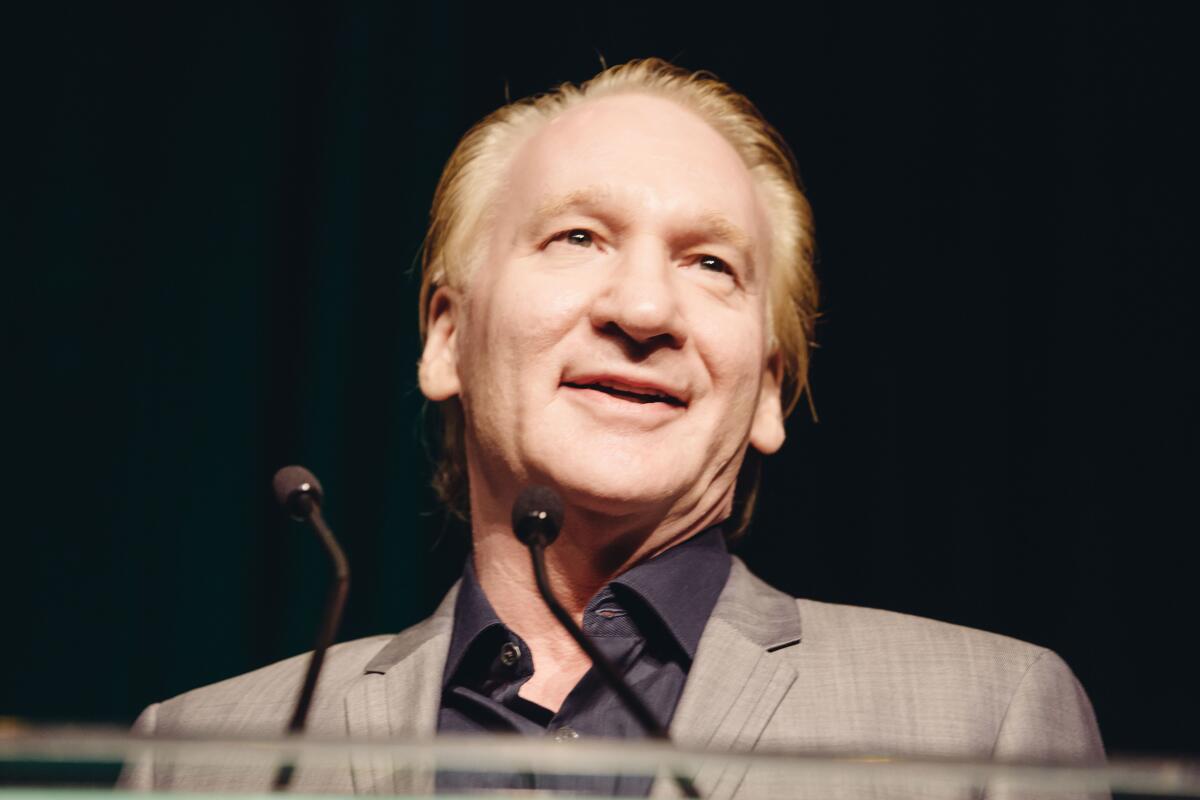
What is it about CNN’s reputation that has to be restored?
I think we have to restore trust. It’s that simple. You can talk to a lot of different people as to why that has eroded, but as opposed to looking back I will say one of our missions is to restore our reputation as the most trusted name in news. We certainly have research that shows that [trust] has eroded.
You wanted to get more Republican lawmakers on the network, and it seems like that’s happening. How did you do it?
It was a very simple message. If you’re looking for a softball interview, then that’s not us. However, we also want to be a place where we can have an open exchange of ideas no matter where you’re coming from, and that you would be treated with respect. We won’t invite you on to score points on you. Come on and have an honest and open discussion about what your vision is for the future of this country, and be prepared to answer respectful, tough questions about that. And that’s the message I brought when I went up on Capitol Hill. I spoke to the same number of Democrats and Republicans when I went up there at every level of leadership and basically said that same message. Because it was also: “Democrats, don’t come on and expect that you’re just going to get a rubber stamp.” We’re going to ask questions that help illuminate whatever we’re talking about for the audience. And it all feeds into the broader strategy of trying not to be cable news. We’re trying to be news on cable. And the difference is cable news is, you would invite people on to have a food fight and that was entertaining. But I think that doesn’t serve society as a whole.
I don’t want to use the word “deal,” but do you have to set any type of conditions? During the coverage of the vote for speaker of the House, you had Ryan Zinke on. The Republican congressman from Montana with his cowboy hat. I’ve never seen him on cable news. He resigned from the Department of the Interior in the Trump administration and was the subject of numerous ethics investigations. He came on CNN, and he wasn’t asked about any of that.
There are absolutely not deals like that. But I think it has to make sense in the scope of the discussion we’re talking about. If he was coming on to promote something that flies in the face of something in his past, then absolutely we would then go, “But wait a second, you had to retire,” or “You had to resign because of X, Y and Z.” But if he’s coming on to talk about a narrow focus, as he did about what was happening on the floor of the House, that is not the appropriate forum. If we’re doing a broad-ranging interview, then of course you’re going to ask those questions.
So what was the fear factor for Republicans before? Why were they not coming on?
The general sense was that you would not get a fair shake and you wouldn’t be allowed to make your point. Although some people came on our air specifically to fundraise. And I don’t want CNN to be a place where you’re going to have such a combative experience that you go fundraise off of it. It is best for our audience to understand where everybody is coming from.
How do you assess the performance of “CNN This Morning”?
Early days. It’s just finding its footing. I think we have all the right raw materials, and now it’s just really about coalescing how the show is produced around those three personalities and utilizing the resources of the network as best as it can. “Morning Joe” took about a year to get its footing.
The ratings were up 7% in the fourth quarter last year, helped by the coverage of the House speaker vote. But the numbers were down for the network overall in 2022. I know you’re in a rebuilding mode, but at what point do you expect them to rise again?
What we are doing is fundamentally reformatting the network. And it’ll take some time for that to get into a rhythm, and then it’ll take time to market it. And so it will take some time to grow again. I have explicitly been given that time. Because the people I work for understand that we didn’t get here overnight and we’re not going to get out of it overnight.
You often beat MSNBC in the 25 to 54 demographic during the day. There is also a news viewing habit during the daytime in which the audience expects a certain person to be there at a specific time. Why play around with that?
The new format completely establishes CNN’s credibility and reputation. Because that is what’s on in offices around the country, in Congress, etc. And we are just redeploying those familiar faces who are not newsreaders, they’re actual journalists. So it’s leaning into their strength, putting them in the same cities, and then really pulling back the curtain as to how we gather news and how a story incrementally changes over time. You’re taking three anchors and you are evolving the news as it evolves for the viewer. In my mind, I want people to be making an appointment with CNN and really showcasing what only we can do, which is global newsgathering. At one point I thought maybe we put the 9 a.m. editorial call on the air. But I was talked out of it for a variety of reasons.
Lawyers probably talked you out of it.
I’m leaning into what makes us special and what will make us look different from our competitors. It’s all about news on cable, not cable news, and trying to differentiate ourselves from our perceived-by-media-writers competition of MSNBC and Fox. I want us to be completely independent of that. So we’re going to try this. It feels authentic. Those people who felt comfortable with the anchor and the appointment that you’re talking about, I fully believe that they will start to make an appointment with CNN.
CNN is younger than the other news networks. But younger people are the ones who are abandoning pay TV. How are you going to reach them in the future?
You realize that I have the No. 1 digital platform in the world? That’s where they’re connecting with the brand. People that will never buy cable and have not bought cable are connecting with CNN far and away at greater numbers than any other newsroom on our digital platforms. And so that’s part of our growth strategy. But at the same time, we have to really make the linear TV product essential, so that at some point when it’s not on cable, the audience will have a brand recognition and a desire to interact with CNN, and that linear product will appear someplace where they are.
You’ve done some cost-cutting, like other media outlets. But I was a little bit surprised that you are not going to buy any more films or series from outside producers for CNN Originals.
Why was that surprising to you?
Because those programs and movies gave CNN appointment viewing and a library that could be amortized over time. The content was easy to promote because of the big-name talent involved. Why do you think this was a place where you should cut?
First, I think we can do some of that with our own people. And I think we can really lean into making long-form programming that will have some of those same benefits. Also, I am part of Warner Bros. Discovery, which has all kinds of resources and content that we can also utilize on our platforms. [Amy Entelis, executive vice president for talent and content development] did an incredible job building that unit. It just got nominated for an Academy Award [for “Navalny”]. And she is in the middle of building an internal studio that can do some of that really glossy high-end stuff that we’ll roll out next year.
That will be Oscar-worthy?
Why not? If we do it in a way where between leveraging resources at Warner Bros., using our people that are some of the best in the business, and some limited co-productions, I think we can absolutely scratch that itch.
Is your message about where you want to take the network resonating at all in the ad community and perhaps even helping firm up your position as the news channel that gets the highest ad rates?
One hundred percent. There’s a major advertiser that pulled all of their advertising off of CNN who is now willing to come back. It was too controversial for them. I met with their chief marketing officer personally and explained what the vision is, and it was very warmly received. They actually pulled their advertising off of cable news because it became this thing that they didn’t want to be a part of.
How often does David Zaslav call and say, “Hey, I like that,” or, “Hey, what are you doing? I don’t like that.”?
I would describe him as a super fan. He watches CNN all the time, and we have conversations about it all the time, but not in a directive way. He loves CNN. If he had a Nielsen box, we would be in great shape.
More to Read
Inside the business of entertainment
The Wide Shot brings you news, analysis and insights on everything from streaming wars to production — and what it all means for the future.
You may occasionally receive promotional content from the Los Angeles Times.
